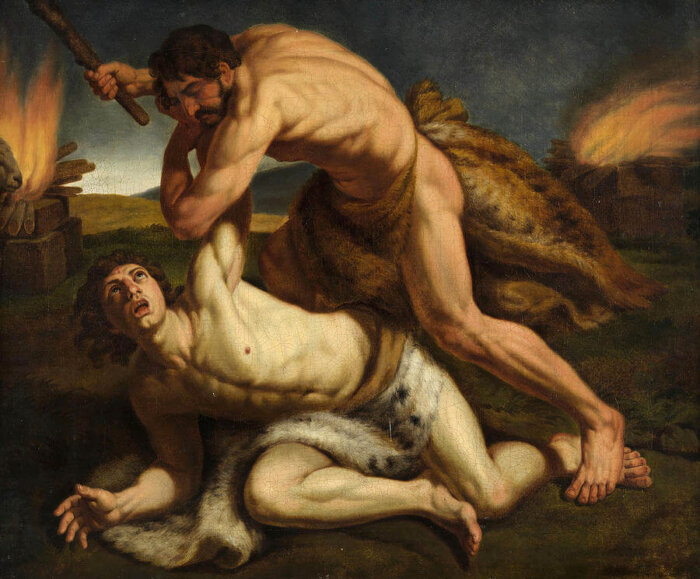Why Choose the Jews?

It feels like forever – so changed are the times! – but it’s only been two days at this writing. Starting in the early hours of October 7, Hamas operatives surprised and overwhelmed Israeli surveillance and defenses at the Gaza border. As never before, they poured into the Jewish homeland itself to gun down, rape, mutilate and kidnap civilians. Not since Israel’s 1948 War of Independence has any attack come so close to the arteries and lifeblood of the whole country.
I may or may not have Israeli cousins there under siege. They’d planned to return home to Israel for the fall months, to renew ties of friendship with their academic colleagues. I don’t know. I haven’t been able to reach them.
In a tiny country like Israel, there isn’t a front and a rear. Everyone is affected. It is, as Jimmy Baldwin described it long ago, a “frail handkerchief flung at the gateway of the middle east.”
When I first saw the land, looking down from my El Al flight, the words that came into my mind unbidden were these: There it is again. How nice! They’ve put cities down this time!
Regimes change. Cultural styles change. Human experience comes in new forms, suited to each new era. Only this hatred does not change. Inside its current bottle of “anti-zionism,” the very same grotesque caricatures have been mixed, for swallowing all the way down to the last, toxic dregs. Quite as if we’d never seen this stuff before.
On campuses, people who would not tolerate even an inadvertent slur against any other victimized group, claim a right to demean and defame Jewish students and professors, employing the familiar tropes of the longest hatred.
What’s inappropriate here? The mistake here has to do with the nature of a college campus. Campuses are spaces marked out for the specialized purpose of education. Words that demoralize or frighten should not be tolerated in those spaces.
For analogous reasons, we don’t allow audible slurs, targeting doctors, nurses or patients, to be repeated in the corridors of hospitals. The space of a hospital has the specialized purpose of healing the sick and the wounded. Neither should such conduct be tolerated in the space of an educational institution.
Readers, this can’t be a difficult point. If it were hard, I wouldn’t be able to think of it.
What’s it all about, this wave of “anti-zionism” – coming most vocally from those who claim to combat Oppression in every form? Minorities are oppressed in China. Dissenters are killed or imprisoned in Iran, and now again in Russia. North Korea is a country where one’s only hope would be to manage an escape. There are well-confirmed reports of torture and extrajudicial killings by the thousands in Venezuela. Cuba continues to function as a repressive dictatorship. The Palestinian Authority continues to govern for many years beyond its last scheduled authorization from voters. Under Hamas in Gaza, children are pressed into service to dig the notorious tunnels that lead up to and under the borders of Israel. They die in those tunnels. Yet, in these and like cases, defenders of the Oppressed say nothing.
I’ve read of two elderly Jews who, in 1945, walked side by side through the gates of a Nazi concentration camp from which they’d just been liberated. The one turned to the other and remarked,
“Now at least they’ll have to stop blaming us for everything.”
“No,” his companion replied. “They’ll find a way to blame us for this too!”
So why? Why the Jews? Do I have a theory? Surely so odd and recurrent a phenomenon deserves attention from philosophers of history and historians! I’ve read Kojeve’s theory of history, Marx’s theory and Hegel’s originating theory. None of them have a convincing explanation – one that covers the cases – for this phenomenon.
In fact, I do have a good explanation, though it’s not an original one. An answer that to me sounds right is provided in Genesis, the opening book of the Bible. Here it is.
Adam and Eve have just been kicked out of their pre-lapsarian paradise —and kicked into history. From here on, they’ll have to work for a living, suffer the pains and joys of asymmetrical relations between the sexes, and – sooner or later – die. Welcome to my world and yours!
As happens in my world and yours, the first couple also have kids: two boys. Mazel tov. What a happy day! However, by the time they grow up, Abel has figured out how to relate to the Creator. In contrast, for whatever reason, his brother Cain hasn’t. That’s okay. No harm done. We each proceed at our own pace, for our own individual reasons.
Had Cain politely asked his brother to explain whatever Abel knows about this unclear challenge of living with God in history, Abel – who’s a nice fellow – would probably have been happy to share what he knows.
But Cain thinks it would be swifter and more “authentic” to do what he’d really rather do, which is … kill his brother.
You see? That’s why they call it a good book!




